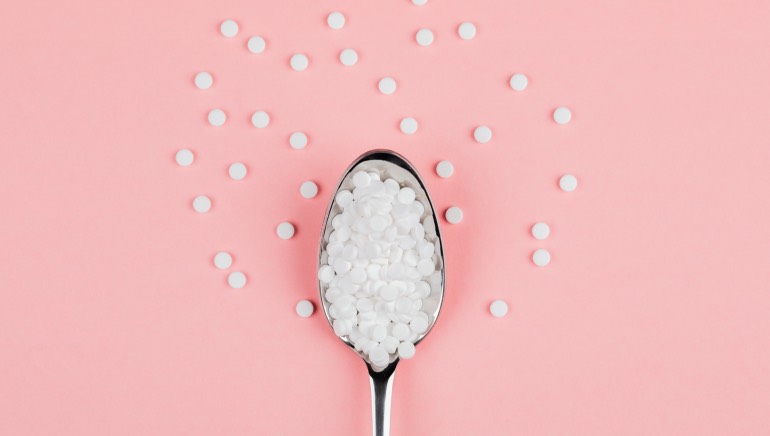
A packet or. It is an extract from the leaves of a plant with the same name.

We have a lot of research and overall we do not see detrimental effects from non-nutritive sweeteners.
Artificial sweeteners when pregnant. Yes most pregnant women can safely use any artificial sweeteners approved by the US. Food and Drug Administration FDA. Artificial sweeteners are calorie-free or nearly calorie-free additives that are used in foods and beverages to make them taste sweet.
They also come in packets so you can add them to food and drinks yourself. Most artificial sweeteners were found to be safe to use during pregnancy except for acesulfame potassium and saccharine. Acesulfame potassium has been found to cross the placenta into the babys system.
The substance is in many dental and pharmaceutical products. The American Academy of Pediatrics the FDA and the American Medical Association have all stated that aspartame is safe for pregnant mothers developing fetuses and breast feeding. Interestingly online you can find data on Acceptable Daily Intake or ADI for different artificial sweeteners.
If you use artificial sweeteners and are pregnant it is always best to talk with your care provider on which sweetener you are using and how much you are consuming. Aspartame is the artificial sweetener found in NutraSweet Equal and most diet soft drinks and other sugar-free treats and its considered safe when consumed in moderate amounts. Low-calorie sweeteners impact your babys health.
A new study suggests that consuming aspartame or stevia during pregnancy can have adverse effects on your baby. Impaired insulin sensitivity a risk factor for diabetes and cardiovascular issues and increased body fat and BMI. Are sugar substitutes safe during pregnancy.
Aspartame Equal NutraSweet during pregnancy. According to the FDA aspartame is safe for use during pregnancy and while breastfeeding. A packet or.
Sucralose Splenda during pregnancy. Saccharin Sweet N Low Necta Sweet. 4 rows FDA has approved artificial sweeteners for pregnant women.
Stevia Sucralose Aspartame and. Should You Avoid Artificial Sweeteners During Pregnancy. We have a lot of research and overall we do not see detrimental effects from non-nutritive sweeteners.
There are some red flags showing concerns about gut microbiome health and the impact of non-nutritive or artificial sweeteners on future preferences for sweet foods. There are a few circumstances under which doctors may recommend artificial sweeteners during pregnancy. The doctor may prescribe artificial sweeteners when a woman may have gained excess weight during pregnancy.
At times women suffer from gestational diabetes which if not managed at the onset can pose a risk on the mother as well as the foetus. The American Pregnancy Association recommends that women with gestational diabetes diabetes mellitus or insulin resistance should limit their exposure to nutritive sweeteners which include both table sugar and some sugar-free sweeteners known as sugar alcohols such as Sorbitol Xylitol Isomalt and Mannitol. Artificial Sweeteners Safe For Use During Pregnancy Sucralose Splenda.
It is a non-caloric sweetener made from sugar and approved by the FDA. It is approved for use in a variety of foods ranging from baked foods fruit juices baking mixes non-alcoholic beverages confectioneries coffee and tea products sauces syrups toppings and more. Low-calorie sweeteners are considered safe to consume during pregnancy and lactation however evidence is emerging from human studies to suggest.
Yes artificial sweeteners are safe to have in pregnancy. All sweeteners in the UK must pass strict safety tests before they can be used in food and drink. Sweeteners are used either instead of sugar or combined with sugar to reduce a products calories.
Artificial sweeteners are better for your teeth. Artificial Sweeteners The US. Food and Drug Administration FDA has approved six artificial sweeteners for use in foods and beverages.
Stevia is a zero calorie artificial sweetener. It is an extract from the leaves of a plant with the same name. For instance aspartame an artificial sweetener and stevia a natural low-calorie sweetener extracted from a plant native to South America are 200-400 times sweeter than sugar.
Current dietary advice suggests that both natural and artificial sweeteners and sugar substitutes are safe to consume during pregnancy.